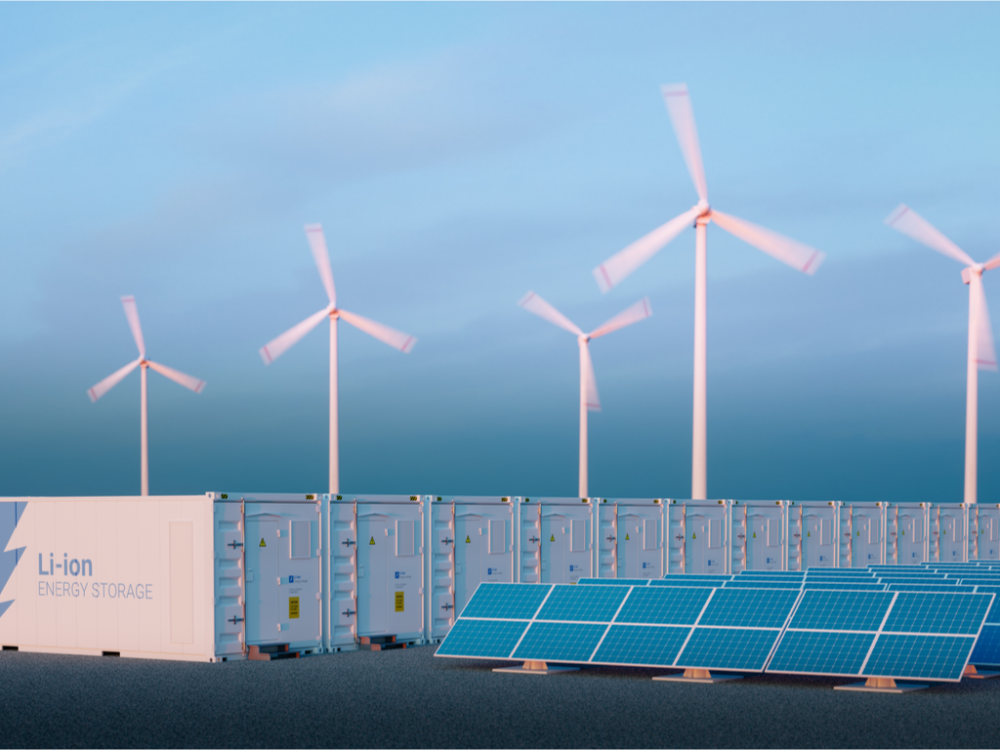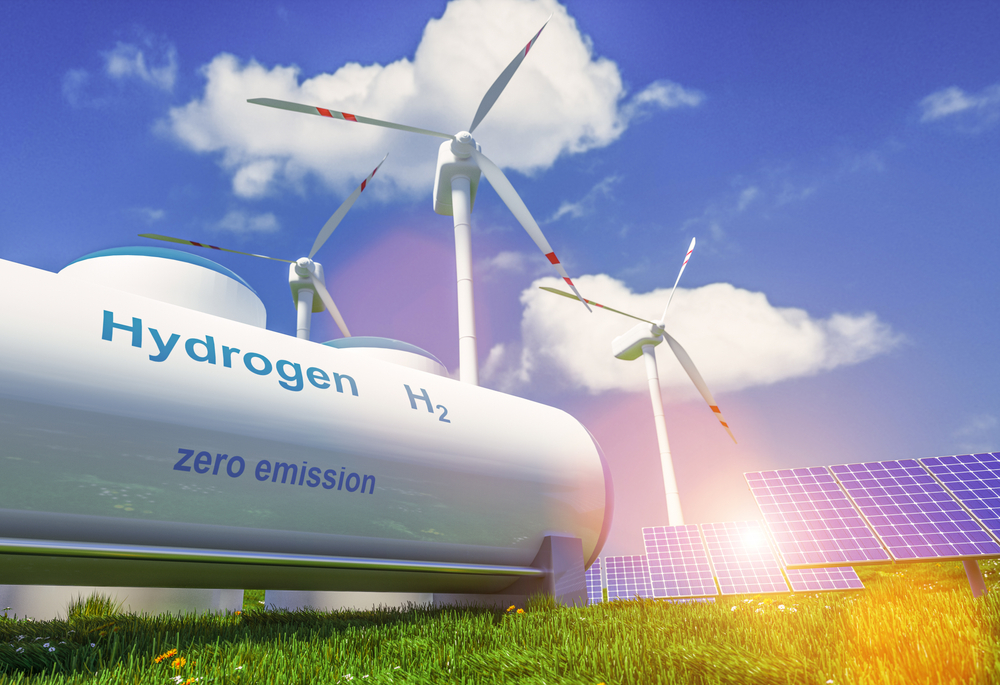Analysis by the Carbon Trust found there is a need to embed flexibility across all energy sectors – power, heat and transport – to cut the cost of decarbonisation

Surveyed investors said they considered the US to be an “attractive venue” for renewables investment compared to leading countries like China over the next three years (Credit: Shutterstock/petrmalinak)
A fully flexible energy system in the UK could cut the cost of reaching net zero by up to £16.7bn ($23.7bn) a year in 2050, says a report.
The analysis, which was led by the Carbon Trust, an expert partner for businesses, governments and organisations around the world, analysed for the first time the system-level value of deploying flexibility across heat, transport, industry and power sectors in Great Britain, and the sensitivity of this value to different scenarios.
It delivers a robust and up-to-date evidence-base on the role and value of flexibility in a net-zero system, to drive decision making across the energy sector and government to create technology, policies and business models to realise the vision.
“Flexibility is vital to unlock value and it is the most important ‘no regrets’ action that can be taken as the UK moves to decarbonise heat, transport and industry, saving billions in investment and operating costs,” said Carbon Trust CEO Tom Delay.
“It’s critically important that industry, business, consumers and the public sector understand the value of flexibility and the benefits that flexibility brings to the British economy. Flexibility always delivers – we should invest in it now.”
Creating a fully flexible UK energy system a “no-regrets decision”, says report
Reaching net zero by 2050 will require an unprecedented expansion of the country’s energy system, with electricity demand expected to treble from 2019 levels.
The objective of the report was to understand how flexibility can help deliver a net-zero transition under three heat decarbonisation scenarios – electric heating, hydrogen heating and hybrid (electric with a backup gas boiler) – rather than recommend an optimal energy system for 2050.
It found there is a need to embed flexibility across all energy sectors – power, heat and transport – to cut the cost of decarbonisation. It added that embedding flexibility in low-carbon heat and transport solutions now will help to reduce their system impact and costs, making the decarbonisation of these sectors more economically feasible.
Carbon Trust believes investing in flexibility is a “no-regrets decision” as it has the potential to deliver material net savings of up to £16.7bn per year across all scenarios analysed in 2050.
Flexibility will also enable the development of a safe and secure net-zero energy system that can operate cost-effectively in diverse situations such as cold, still winter periods (when variable wind and solar generation can’t run) and summer solar excesses, while reducing Great Britain’s reliance on back-up gas-fired generation.

The analysis confirms the benefit of taking a whole-systems approach to energy. The value of flexibility to the energy system as a whole is many times its value to the electricity sector alone, because it allows for interactions at all levels in an integrated system, between vectors, and at the different timescales – from seconds to seasons, that are required to maintain a secure system.
But to achieve this, digitalisation is needed across the energy system to allow information sharing, monitoring and coordination between assets and organisations.
The analysis also considered the use of hydrogen across the energy system. It found that the development of hydrogen uses and associated infrastructure, such as electrolysers, natural gas reformers, biomass gasifiers, carbon capture and storage (CCS) infrastructure, hydrogen turbines and storage, for 2050 has “significant system benefits if coordinated effectively”.
Carbon Trust said driving this value is the ability of the system to optimise production from electrolysers to coincide with high energy supply times, store hydrogen and then use it for heating, power production and other applications across transport and industry.
But it added that there is a need to diversify hydrogen production routes – from electricity and water, gas and biomass – and develop CCS infrastructure at scale to deliver a hydrogen future cost-effectively.
Challenges of developing a smart flexible net-zero system
The report also identified key challenges that could delay, or prevent, the development of a smart flexible net-zero system.
The authors have called for flexibility to be treated as a “core infrastructure challenge” and to be integrated into low-carbon generation, network planning and heat and transport decarbonisation strategies.
The analysis recommends that policymakers try to preserve existing flexibility options and act now to maximise future flexibility, such as by building it into “smart” appliances or building standards.
Consumer engagement and confidence-building are also critical to scaling up the deployment of flexibility technologies, according to the report.
For flexibility to be rolled out successfully, it said it’s crucial to develop business models that capture its value and to overcome consumer acceptance challenges when delivering new mobility, heating and smart appliance solutions.
An evolving regulatory environment, combined with potentially low financial gains in the long term, will create challenges for developing these new business models. But, by improving cost-effective data access, the analysis notes that some of the cost burdens can be alleviated.
